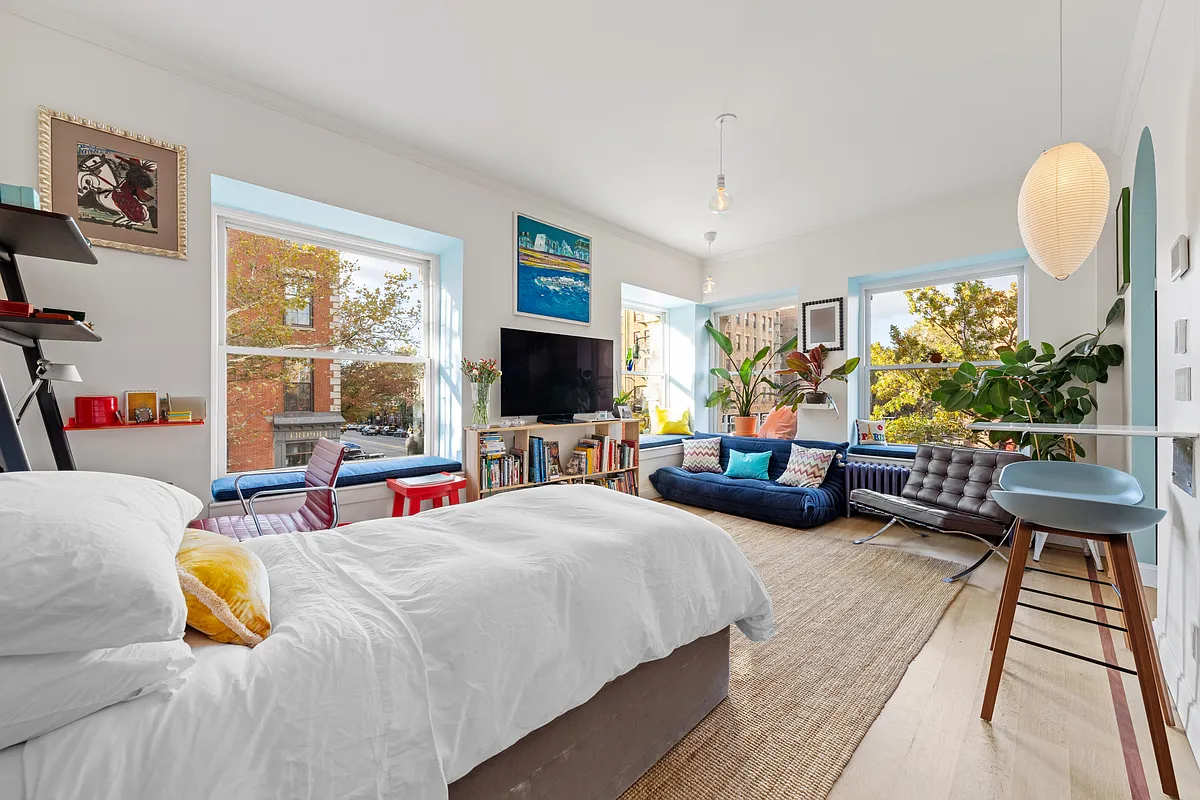How the Financial Crisis May Not Be So Bad for New York
We just got around to reading the cover story of the current issue of The Atlantic Monthly called How the Crash Will Reshape America. One of the article’s central points is that while hubs of intellectual and creative capital like New York will surely suffer in the economic crisis, they will suffer a lot less…


We just got around to reading the cover story of the current issue of The Atlantic Monthly called How the Crash Will Reshape America. One of the article’s central points is that while hubs of intellectual and creative capital like New York will surely suffer in the economic crisis, they will suffer a lot less than second-tier cities, the suburbs or industrial areas and therefore benefit on a relative basis. While there has been much hand-wringing about New York’s reliance upon the finance industry, many other smaller cities, it turns out, are much more reliant: Hartford, Des Moines and Charlotte, to name a few. Rather, New York is an incredibly diverse place which should be well-positioned to reinvent itself faster and more efficiently than other places:
New York is much, much more than a financial center…It is home to a diverse and innovative economy built around a broad range of creative industries, from media to design to arts and entertainment. It is home to high-tech companies like Bloomberg, and boasts a thriving Google outpost in its Chelsea neighborhood… New York is more of a mecca for fashion designers, musicians, film directors, artists, and—yes—psychiatrists than for financial professionals…The financial crisis may ultimately help New York by reenergizing its creative economy…Place still matters in the modern economy—and the competitive advantage of the world’s most successful city-regions seems to be growing, not shrinking…Talent-rich ecosystems are not easy to replicate, and to realize their full economic value, talented and ambitious people increasingly need to live within them…Economic crises tend to reinforce and accelerate the underlying, long-term trends within an economy [like the map of per capita patent creation above]… In this case, the economy is shifting away from manufacturing and toward idea-driven creative industries—and that, too, favors America’s talent-rich, fast-metabolizing places.
Sounds good so far, right? Here’s how the trends will play out on the American landscape, according to the author Richard Florida:
What will this geography look like? It will likely be sparser in the Midwest and also, ultimately, in those parts of the Southeast that are dependent on manufacturing. Its suburbs will be thinner and its houses, perhaps, smaller. Some of its southwestern cities will grow less quickly. Its great mega-regions will rise farther upward and extend farther outward. It will feature a lower rate of homeownership, and a more mobile population of renters. In short, it will be a more concentrated geography, one that allows more people to mix more freely and interact more efficiently in a discrete number of dense, innovative mega-regions and creative cities. Serendipitously, it will be a landscape suited to a world in which petroleum is no longer cheap by any measure. But most of all, it will be a landscape that can accommodate and accelerate invention, innovation, and creation—the activities in which the U.S. still holds a big competitive advantage.
Sounds like we’re sitting pretty, huh?
How the Crash Will Reshape America [The Atlantic]





Great piece, a friend sent it to me. Seems true for creative workplace areas of BK: dumbo; east willie-b; sunset; gowanus.
The Atlantic Monthly states what is patently obvious and further evidenced by Case-Schiller data. NY will continue to fare better than all the suburbs and exurbs, and most other urban areas.
I can’t remember which dead-enders on this site have been arguing that NY will get hit harder in the future because it hasn’t been hit hard enough yet. But evidence will continue to prove them wrong.
I’m pretty sure Rob is 16 years-old. Nothing left to innvovate?! Head back to history class, dude.
How about innovating a way to live in this planet sustainably?
remember 10 years ago when you still had dial up internet access and no iphone!!!!!!!!
SHIT!
Rob’s comments should also be, gently, put into context. He’s lived in park Slope for quite few months and hasn’t been either to the Park or Smith Street. Reminds me of attempts by the head of the Patent Office to close it at the turn of the 19th/20th century to close it since everything had been invented already! Even the most cursory reader of science fiction will be aware of many possibilities. I think we would be foolish to think of innovation in merely technological ways. I personally would hope to see more inventions and developments in how we relate to each other as people, but I am not sure how we make a buck off that. That I can’t be more articulate about what these changes could be is more a reflection of my lack of imagination than the many possibilities out there.
Not sure that I agree with Wasder that the west coast is more exotic than the east (but I know Clinton Hill is better than Park Slope). I often found the gay men who moved to San Francisco did so because they were a little afraid of the big bad city of New York.
“some people think there isn’t anything left to “innovate”, “invent”, or “create.” and i partially agree.”
Then again, you’re the same guy who majored in psych and visual arts and have (by your own admission) nothing to show for it, and who doesn’t want to pay back student loans because you were too lazy or too dumb (again, according to you) to figure out how much you needed. So maybe we should take your views with a grain of salt, Rob. Nothing personal.
Rob seems to be expressing some sort of Luddite point of view, that in my grumpier days I can sometimes see the validity of, which is that we have enough already of everything. What else could we possibly want? I sometimes feel that way, but for the most part I completely support the march of technological innovation. (Rob, is that where you were going?)
Okay, all you nostalgists for the “gritty” days of the 70s, when the punk scene was flourishing, artists were still colonizing Soho, and starving writers could still hole up in the Lower East Side…time to quit bitchin about the current “crash” and break out the Champagne! Now, instead of squats and lofts, the struggling creatives can scoop up bargains on condos gone rental!
Snark–I think Brooks is falling victim to the popularity contest nature of how that polling appears to have been done, what with the “what cities would you most like to live in” type questions. Anyone given that kind of choice will pick somewhere “exotic” (I am assuming most Americans consider the west coast at least somewhat more exotic than the east). We are a nation of restless folks for sure, but I don’t think anything David Brooks wrote effectively argues against what this article is saying (still trying to figure out if I buy that article’s core argument).